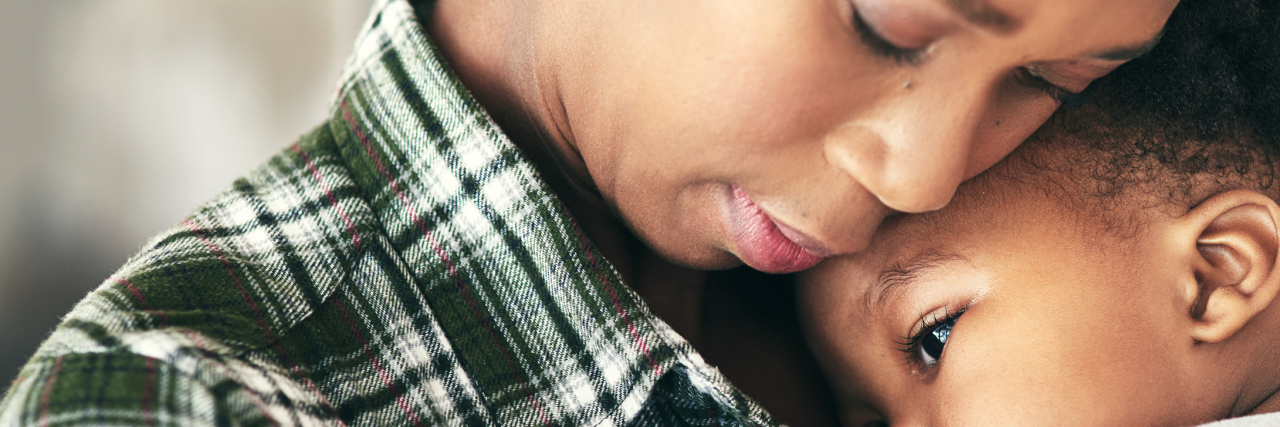Why Adoption Is Not a Humane Alternative to Abortion
Editor's Note
If you’ve experienced sexual abuse or assault, the following post could be potentially triggering. You can contact The National Sexual Assault Telephone Hotline at 1-800-656-4673.
The Supreme Court of the United States’ (SCOTUS) decision to force births to create a “domestic supply of infants” to meet needs of parents seeking infants to adopt unethically compromises the
mental health of birth families and adoptees.
The United States Supreme Court is about to make a mistake that will take us back decades and create a legion of mothers and fathers who will now be birth parents. What a mistake and atrocity that will be. This policy assumes that adoption comes consequence free. It does not. I know this from personal experience.
Before Roe v. Wade, women did not have access to safe and accessible abortions — especially marginalized women. Many women resorted to homemade remedies for pregnancies and others were wealthy enough to afford alternative means. The ones we forget about are the girls and women who were forced into adoption.
“We’ve been here before, of course — most recently in the decades from 1945 to 1973, now known as the ‘Baby Scoop’ era, when more than 1.5 million pregnant girls and women in the U.S. were sent away to maternity homes to surrender children in secret.
By the 1960s, more than 200 homes for unmarried pregnant women were operating across 44 states. Parents, often counseled by religious leaders, sent their daughters away to these homes to wait out their pregnancies and relinquish their babies to ‘legitimate’ married couples. Meanwhile, the young men who shared equal responsibility for the pregnancies typically carried on with their lives unfettered by social stigma.”
So, here we are again — babies who are wanted but are forcibly removed from their birth family due to age, financial situations, or relationship issues and this all could have been avoided by a choice of abortion.
Much of society thinks that adoption is easy and not nearly as messy and traumatic as it really is. Adoption is not just the beginning of a family, but the main story is that it is a loss of a family. The loss of connection that can never be repaired once severed.
A mother who gives birth does not just move on. She does not
just look away and carry on with life with no regrets or grief.
The Supreme Court is leaving these mothers and the fathers with a deep and wounding scar that will never fully heal. To lose a child, like me, to adoption leaves you always wondering how that child is, how is the child being treated, is it better off without you?
The reality is that the child is traumatized no matter how young the adoption is conducted. The child will likely always wonder why they weren’t lovable enough to be kept (no matter how wonderful the adoptive family is). They can feel like an outsider their entire life always wondering who they are, who they look like, what about them is inherited.
As a mother of a child I placed for adoption, I know what the loss looks like. I know the longing and pain that follows. I know about the pain of seeing Mother’s Day photos on social media and knowing I am not even going to get a card this year. I know the pain of losing your friends who have children because they do not know what to say to you anymore. I know the pain of answering the question, “Do you have children?”
People say, “Well, you can have an open adoption and still know
your child.” I am here to share that from knowing many women in open adoptions, most of them close at some point. Adoptive parents seemingly get scared and close off to protect their relationship with the child. I am in an open adoption, and it has become more and more closed as time has gone on. My daughter turns 18 in a year and a half I am looking forward to the day I can access her without restriction.
So the religion-based for-profit adoption agencies are gleefully gearing up for an influx of babies. This is big business for them, as they know many adoptive parents are in search of the “perfect white child” to add to their family, and forcing birth and adoption means a larger “domestic supply of infants” for those adoptive parents to choose from.
I am here to say: Adoptive parents are not entitled to these children. Often, someone loves and cares for these children and wants them, but because of circumstances is not allowed or able to care for the child. I don’t believe we should be pairing up children with adoptive families, but instead looking at the first family and seeing how we can support it so it can care for its own child if they want to. If not, allowing them to terminate a pregnancy they do not want without consequence. As someone who has had an abortion due to incest and has placed a 4-year-old for adoption, I don’t believe adoption is a viable or humane alternative to abortion.
Needless to say, I am pissed at this potential outcome to the anti-abortion movement. I am also very scared about what this means for parents and children all over this country who will be forced into families they did not choose.
I will continue to write about this issue and do advocacy work to bring to light how this proposed flawed verdict will negatively impact our country. All of this has been predicated on a lie that adoption is harmless.
If you are an advocate for choice, stay positive; we can fight this together. We can be Mighty Strong!
Getty image by PeopleImages

